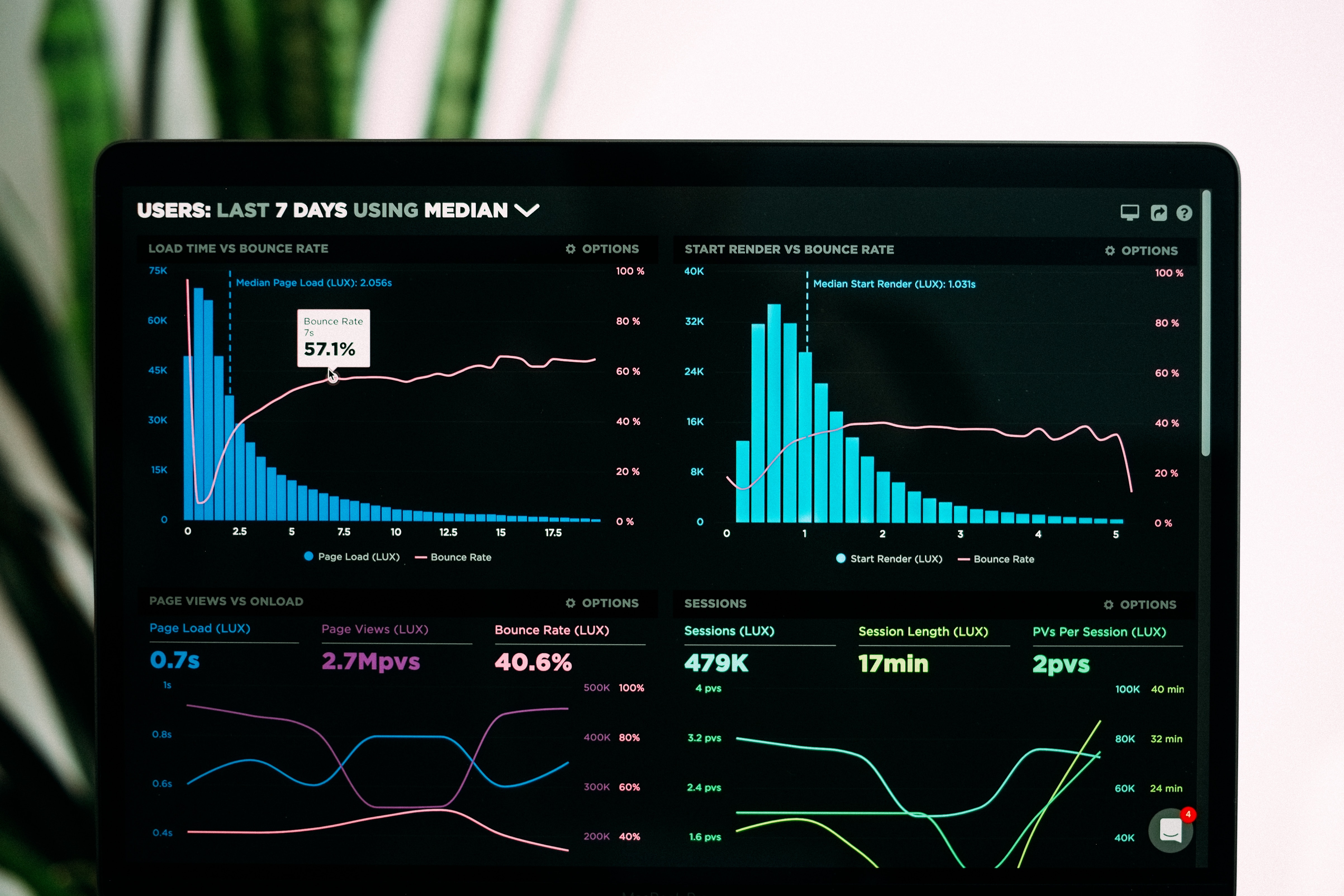How to optimize Framer Website for better SEO
How to optimize Framer Website for better SEO
Oct 7, 2024
Said Aidogdu
How to Optimize Your Framer Website for Better SEO
In today's digital landscape, optimizing your Framer website for search engine optimization (SEO) is crucial for increasing visibility and improving user experience. By implementing best practices tailored for Framer, you can enhance your website's performance in search results, attract more visitors, and ultimately achieve your business goals. This article will guide you through effective strategies to optimize your Framer site for better SEO outcomes.
What Are the Best Practices for SEO in Framer?
Understanding SEO Fundamentals for Framer
To successfully optimize your Framer website, it's essential to understand the fundamentals of SEO. Search engine optimization involves various techniques aimed at improving your site’s visibility on search engines like Google. These techniques help search engines understand your website’s content, enhancing its chances of ranking higher in search results. With Framer, you have tools at your disposal that can automatically optimize your site for SEO, but understanding the underlying principles will help you make informed decisions for further enhancements.
Implementing Meta Titles and Descriptions
Meta titles and descriptions are critical components of your website’s SEO strategy. A well-crafted title and description not only improve your site's search engine rankings but also enhance the user experience by providing clear and concise information about your page. In Framer, you can easily set these elements within your site settings. Ensure that your meta titles are unique, contain relevant keywords, and accurately reflect the content of your pages. Descriptions should be compelling and informative, tempting users to click through to your site.
Utilizing Relevant Keywords in Your Content
Keywords are the backbone of effective SEO. They are the terms that users input into search engines when looking for information. To optimize your Framer website, you need to identify relevant keywords that align with your target audience's search intent. By utilizing these keywords thoughtfully within your website's content, you can significantly improve your site's search engine rankings. Remember to incorporate keywords naturally into your text, ensuring that your content remains engaging and readable.
How Can I Conduct Keyword Research for My Framer Site?
Tools for Effective Keyword Research
Conducting keyword research is essential for establishing a strong SEO foundation for your Framer site. There are numerous tools available, such as Google Keyword Planner, SEMrush, and Ahrefs, that can help you identify valuable keywords based on search volume and competition. These tools allow you to analyze trends and understand what your audience is searching for, enabling you to tailor your content strategy accordingly. By leveraging these resources, you can uncover high-value keywords that will enhance your site's optimization.
Identifying High-Value Keywords for SEO Optimization
When identifying high-value keywords, focus on those that not only attract traffic but also convert visitors into customers. Look for keywords with a balance of search volume and low competition. Long-tail keywords, which are more specific phrases, can be particularly effective in driving targeted traffic to your Framer site. For instance, instead of targeting a broad keyword like "website design," you might aim for "custom e-commerce website design in Framer," which is more likely to attract users interested in your specific services.
Integrating Keywords into Your Framer Content
Once you have identified your target keywords, the next step is to integrate them into your Framer website's content. This includes headings, body text, image alt tags, and even URLs. However, it's vital to ensure that the integration feels natural and does not disrupt the flow of your content. Overstuffing your text with keywords can lead to a poor user experience and may even result in penalties from search engines. Aim for a seamless incorporation of keywords that enhances the overall quality of your content while improving its discoverability.
What Role Do Meta Descriptions Play in SEO Optimization?
Crafting Compelling Meta Descriptions
Meta descriptions play a significant role in SEO optimization by providing a brief summary of your page's content. They appear in search results beneath the title and are crucial for attracting clicks. A well-crafted meta description should be concise, engaging, and include relevant keywords. Aim for a length of approximately 150-160 characters to ensure that your entire description is displayed in search results. By writing compelling meta descriptions, you can entice potential visitors to click on your link, thereby improving your website's click-through rate.
Best Practices for Meta Titles and Descriptions
To maximize the effectiveness of your meta titles and descriptions, adhere to some best practices. Keep your meta titles under 60 characters to avoid truncation in search results. Use action-oriented language to encourage clicks, and ensure each title is unique to avoid content confusion. For descriptions, focus on clarity and relevance, highlighting the benefits your content offers. Utilizing schema markup can also help improve how your titles and descriptions appear in search results, further enhancing their effectiveness.
How Meta Descriptions Impact Click-Through Rates
The impact of well-optimized meta descriptions on click-through rates (CTR) cannot be overstated. Search engines often display meta descriptions in search results, providing users with a snapshot of your content. A compelling description can significantly increase the likelihood of users clicking on your link rather than competitors. By analyzing your CTR through Google Analytics, you can assess the effectiveness of your meta descriptions and make necessary adjustments to improve your site's performance.
How to Create a Sitemap for SEO in Framer?
Importance of Sitemaps for Search Engines
Sitemaps are crucial for SEO as they help search engines understand the structure of your website and find new or updated content more efficiently. A well-structured sitemap acts as a roadmap for search engine crawlers, ensuring that all important pages are indexed. For Framer users, creating a sitemap is an essential step in enhancing your site's SEO performance. By submitting a sitemap to search engines, you increase the likelihood of your content being discovered and ranked appropriately.
Steps to Generate a Sitemap in Framer
Generating a sitemap in Framer can be done easily by navigating to the settings menu. Framer provides automated tools that help you create a sitemap that includes all the relevant pages of your website. Ensure that your sitemap is regularly updated to reflect any changes or additions to your content. Additionally, consider organizing your sitemap in a way that makes it easy for search engines to index your pages efficiently, which can lead to improved SEO outcomes.
Submitting Your Sitemap for Better SEO Results
After generating your sitemap, the next step is to submit it to search engines. This can typically be done through the Google Search Console, where you can upload your sitemap URL. Submitting your sitemap allows search engines to crawl your site more effectively, ensuring that your new and updated content is indexed promptly. Regular submission of your sitemap, particularly after significant updates, can help maintain your site's visibility and improve your SEO results over time.
How Can I Track My SEO Results and Optimize Further?
Using Analytics Tools for SEO Performance
Tracking your SEO performance is vital for understanding how well your optimization strategies are working. Tools like Google Analytics allow you to monitor various metrics such as traffic sources, bounce rates, and user engagement on your Framer site. By analyzing this data, you can identify which aspects of your SEO strategy are effective and which may require adjustments. Regularly reviewing your analytics will help you stay informed about your site's performance and guide your future optimization efforts.
Adjusting Your SEO Strategy Based on Analytics
Once you have gathered data from your analytics tools, it’s important to adjust your SEO strategy accordingly. If certain keywords are driving traffic but not conversions, consider revising your content to better align with user intent. On the other hand, if some pages are performing exceptionally well, analyze what makes them successful and replicate those elements across your other content. Continuous optimization based on analytics insights will help you maximize your site's SEO potential.
Common SEO Metrics to Monitor
There are several key SEO metrics to monitor to ensure your optimization efforts are paying off. These include organic traffic, bounce rate, average session duration, and conversion rates. Additionally, tracking your website's rankings for target keywords will provide insights into your SEO performance over time. By keeping an eye on these metrics, you can make informed decisions about your ongoing SEO strategy and identify areas that require further attention.


































